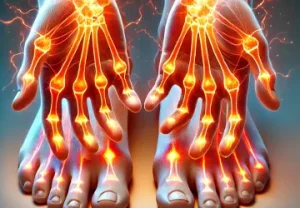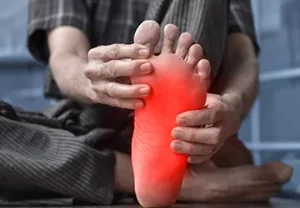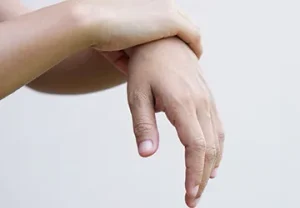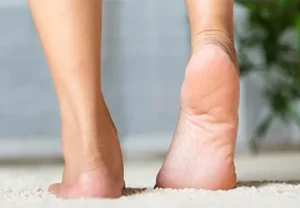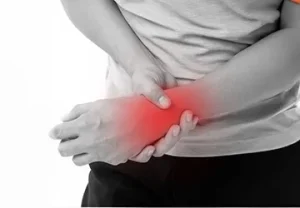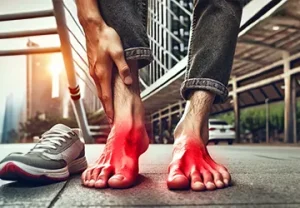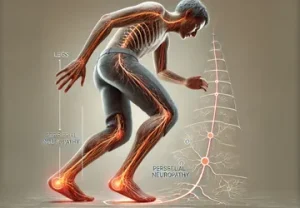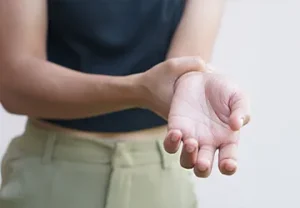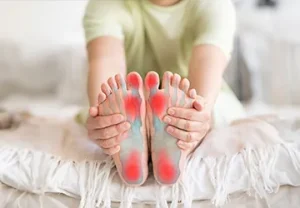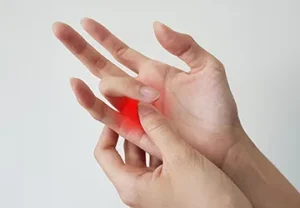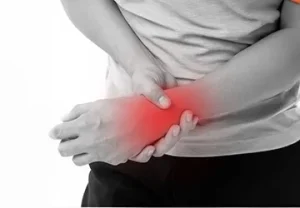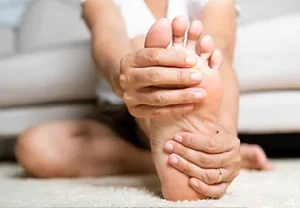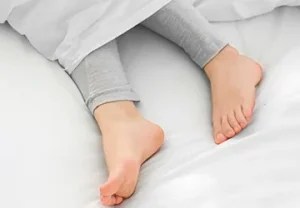Types of Peripheral Neuropathic Symptoms
Peripherally located neuropathy can manifest a wide variety of symptoms. Some of the most common include burning pain in the hands and feet.
The Spectrum of Peripheral Neuropathy Symptoms
Below are some of the most common symptoms experienced by people suffering from neuropathy located in their arms, hands, legs and feet.
- Pins-and-needles sensation in hands or feet
- tUnlike the experience of coming out of a pretzel body, tingling and numbness
- Arms and legs feeling weak; Unsteadiness on feet, easy falling
- Knobby sensations in the soles of the feet or palms
- Lightest touches cause pain
- Walking is Difficult
- Pain from the pressure on your feet when you walk
- Balance problems
- Hands unable to hold things
- Feet get cramp
- Fingers stuck in different positions
- Twisting your wrists is painful
- “Hands and feet tired” or” heavy feelings in the hands “
- Night-time aches
- Restless legs and feet
It’s been reported that even the sheet on their beds keeps folks up at night causing discomfort, so they can’t sleep well.
If you experience any of these symptoms, please contact us. Miami Neuropathy Relief Center is skilled in using modern, non-invasive treatment protocols to reduce your neuropathic pain and help you get back to a perfectly healthy life. To find out more or to make an appointment, please call us at (305) 275-7475 today. We want to help you turn the corner so that pain no longer rules your life.
Neuropathic pain is intensified by sight. They cannot get a good night’s sleep and will then suffer more from other afflictions.
Burning pain radiating in hands or feet
Pins and Needles in the Extremities
Numbness and tingling
Weakness in arms and legs
A Knotted Feeling in the Soles and Palms
Pain from the Lightest Touches
Difficulty Walking
Pain from the Pressure of Walking
Balance Problems
Inability to grasp with the hands
Cramping of the feet
Fingers Twisting and Locking
Pain when Twisting the Wrists
Hands and Feet Feeling Tired or Heavy
Night pain and sleep difficulty
Restless legs and feet
FAQ
What are the most common symptoms of Peripheral Neuropathy?
Peripheral Neuropathy manifests through a variety of symptoms, primarily affecting the sensory and motor functions. Common symptoms include burning pain in the hands or feet, sensations of pins and needles, numbness, tingling, and muscle weakness. Patients may also experience hypersensitivity to touch, difficulty walking, balance issues, and discomfort from everyday activities like walking or grasping objects.
Why does Peripheral Neuropathy cause pain from light touches?
This condition, known as allodynia, occurs because Peripheral Neuropathy can alter nerve function. The damaged nerves misinterpret signals from the skin, translating light touches into painful sensations. This hypersensitivity is a direct result of the nerves’ impaired ability to process and transmit sensory information accurately.
Can Peripheral Neuropathy symptoms worsen at night?
Yes, many individuals with Peripheral Neuropathy report an increase in symptoms like pain, tingling, and restlessness during the night. This can be due to the reduction of distractions, which makes the brain more aware of pain, or due to the position of the body, which might exacerbate discomfort. Additionally, the lack of movement can cause fluids to accumulate in the extremities, intensifying sensations of pain and discomfort.
How can I manage the symptoms of Peripheral Neuropathy at home?
Managing Peripheral Neuropathy involves various strategies to alleviate symptoms and prevent further nerve damage. These include maintaining optimal blood sugar levels if diabetic, engaging in regular physical activity to improve circulation, using topical treatments for pain relief, and employing relaxation techniques to improve sleep quality. It’s also beneficial to avoid alcohol and smoking, as these can worsen symptoms.
When should I seek medical help for Peripheral Neuropathy?
You should consult a healthcare professional if you experience persistent pain, numbness, weakness, or any change in functioning of your hands and feet. Early diagnosis and treatment are crucial for managing symptoms effectively and preventing progression. Additionally, if you notice a sudden or significant increase in symptoms or if your daily activities are severely impacted, seek medical advice promptly.
